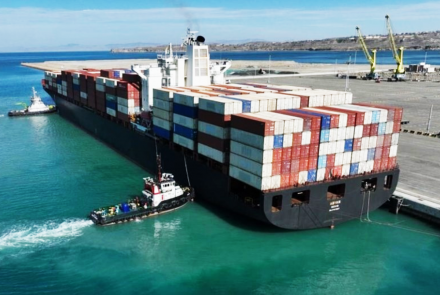With rising tensions between Israel and Iran, concerns are mounting about the potential impact of the conflict on Afghanistan’s foreign trade.
The Afghanistan Chamber of Commerce and Investment has warned that continued war in the region could pose serious challenges to the country’s trade relations.
Officials at the chamber said Pakistan must play a facilitating role in trade with Afghanistan during these sensitive times.
Khanjan Alokozai, a board member of the Chamber of Commerce and Investment, said: “This is a very serious issue, especially during the fruit harvest season. We hope that our friendly neighbor Pakistan can extend a helping hand in certain areas. The crisis in Iran has affected both us and Pakistan.”
Meanwhile, the Chamber of Agriculture and Livestock has expressed concern over the possible closure of key ports such as Chabahar and Bandar Abbas—a development that could severely disrupt Afghanistan’s exports.
Traders have also called on the government to engage in dialogue with Central Asian and European countries to assess and open alternative trade routes.
Mirwais Hajizada, First Deputy of the Agriculture and Livestock Chamber, said: “Chabahar was one of the best ports and had grown significantly in recent years, but unfortunately, problems have emerged. I recommend that the government make greater use of its recent visits to Russia and Kazakhstan to gain access to Russia’s Fortex markets for our exports.”
Trader Omid Haidari stated: “The closure of Bandar Abbas and Chabahar has negatively affected our exports, imports, and transit, and has increased our dependence on other countries. We request the establishment of alternative routes and markets for Afghan exports to boost agricultural exports compared to last year.”
Although the Ministry of Industry and Commerce says foreign trade is continuing normally despite regional unrest, economic experts urge precise planning to prevent domestic price increases.
Abdul Nasir Reshtia, an economic analyst, said: “Our trade volume exceeds three billion dollars, and in the short term, it’s very difficult for the private sector and the Afghan government to change trade routes. However, since the Islamic Emirate came to power, Afghanistan is no longer dependent on a single route; we are connected to multiple corridors and can import and export goods from other countries.”
Yesterday, the Deputy Minister of Economy also expressed concern over the escalation of the Israel–Iran conflict, noting that trade between Afghanistan and Iran was expected to reach $10 billion, but current tensions may negatively affect regional trade for Afghanistan.

